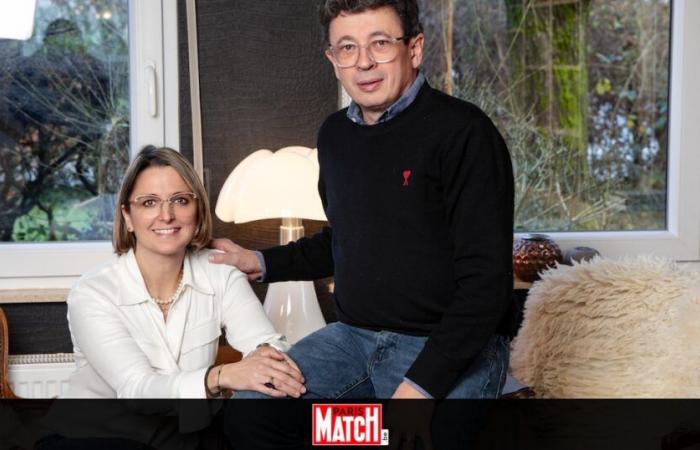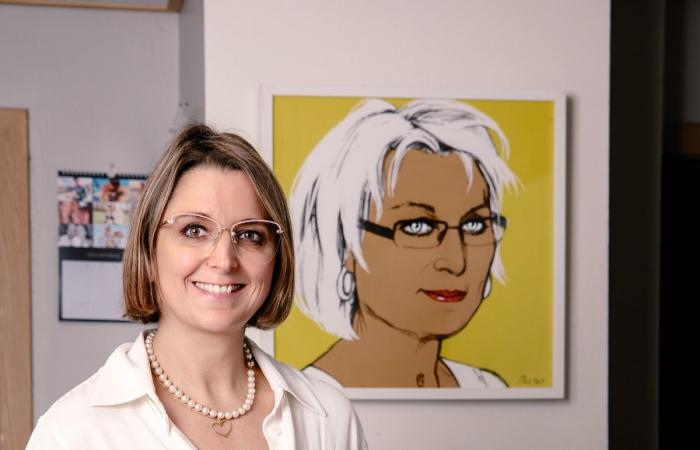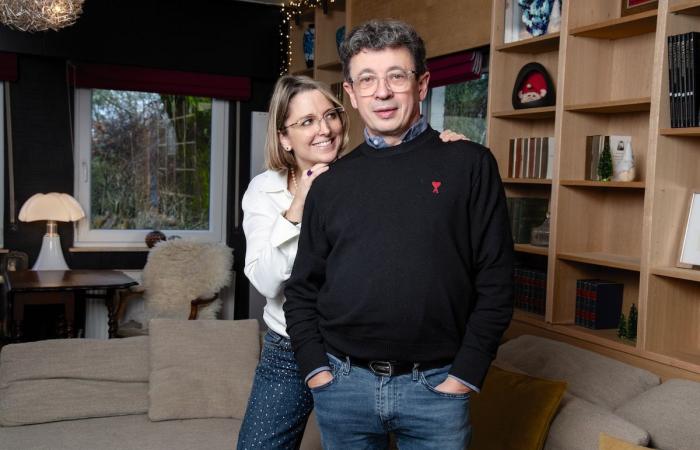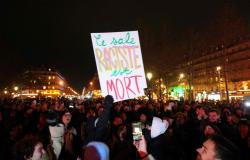How do you experience your husband’s success in bookstores? Is this a surprise?
Nadine Cheniaux: “Yes and no. The first book, released in 2022, did not benefit from much promotion. We said to ourselves: “If we sell 5,000 of them, it will already be a bestseller for Belgium and we will be happy.” I could see that it amused him, and I was happy for him. But never, ever, would we have imagined that, two years later, it would be such madness! Since March , it doesn’t stop. One day when it no longer amuse him, Philippe will stop writing. We don’t want it to become a constraint.”
Nadine Cheniaux: “I remember one Sunday when he was on call. He had covered a horrible affair: a mother, in a psychotic delirium, had killed her son with an ax, then tried to kill her daughter. He had returned after that with croissants, as if nothing had happened.”
How do you explain that people are passionate about such a subject?
“Death fascinates at the same time as it frightens. In our current European culture, we have put aside everything that concerns mourning, accompanying the dead, talking about it openly. And this is precisely to This is what Philippe’s books intrigue and attract: they evoke death in a different way, with simple words, a fair tone, humor, always with respect… During the dedications, psychologists told us to use them with patients suffering from anxiety related to death, because they say it calms them down. Readers also told us how much it had helped them. Recently, a lady whose son had been autopsied shocked me: thanks to Philippe’s words, she had found keys to. overcome his pain.”
You are a speech therapist. He describes himself as a forensic doctor who likes to make the dead talk. In short, the word brings you together…
“It’s true that we share this attachment to speech, but we experience it differently. I tend to talk a lot about my job. As an independent, I don’t have many exchanges with other professionals, except in nursing homes where I intervene for serious cases of dysphagia. So, when I return, I need to vent, to tell what I experienced. quite the opposite. of a Sunday when he was on duty: a mother, in a psychotic delirium, had killed her son with an ax, then tried to kill her daughter. He came home after that with croissants, like. if nothing had happened. He didn’t say a word about this horror!
Why in your opinion?
“I think it’s a question of need. For me, speaking has a cathartic power. Talking relieves me, it helps me gain perspective. It’s not the same for him. Maybe because he’s older than me, he’s learned to deal with it differently.”
Maybe he needed to write it down?
“Indeed. Now that you mention it, I notice a change since he put all that in his books. Maybe writing allows him to release what he keeps inside. I hadn’t makes this connection, but yes, it could well be that this is his way of venting.”
Before meeting him, what relationship did you have with death?
“I didn’t come into contact with her at all. At the end of my studies, in 2000, I was immediately hired as a medical representative in a laboratory specializing in psychiatry and neurology. So I only saw doctors who treated illnesses. In 2006, I enlisted Philippe as a speaker to talk to them about patient rights and psychiatric emergencies What to do when a patient is in the middle of a psychotic crisis What documents should I fill out so that the judge can? intern him? Afterwards, I asked him if he gave lectures on autopsies, because I found that there was a slot to be taken up. All the general practitioners wanted to attend his talks.
Find the entire interview with Nadine Cheniaux in your Paris Match, currently available in bookstores.
Philippe Boxho with a scalpel: “A dead person is a dead person. I know how the body evolves”
How do you explain your success between the second and third books?
Philippe Boxho: “My appearance on Guillaume Pley’s “Legend” podcast gave a phenomenal boost to my reputation. Initially, we didn’t imagine going to France, but the power of social networks is incredible. The first interview made a million views, the second, seven million, the third, it was a total explosion.”
What have you learned about yourself from being published and purchased?
“That I am capable of resisting, of keeping a cool head. I never thought I would experience such a whirlwind.”
Philippe Boxho: “On a medico-legal level, the story is frankly fictionalized, if not completely invented.”
What got you into writing? The need to put down on paper what you couldn’t say?
“No, I don’t need that. There’s nothing cathartic about it. My job is banality. Often, I don’t even remember the cases. I have to pass in a street or that I go back to my class delirium to remember a story Really, it doesn’t affect me. It’s the publishing house that came to see me after hearing me on a show. wasn’t sure if I would accept, because I was more used to writing reports resembling police reports. I started with two or three chapters and, fortunately, I quickly found the tone. I am a storyteller. I speak in front of students.”

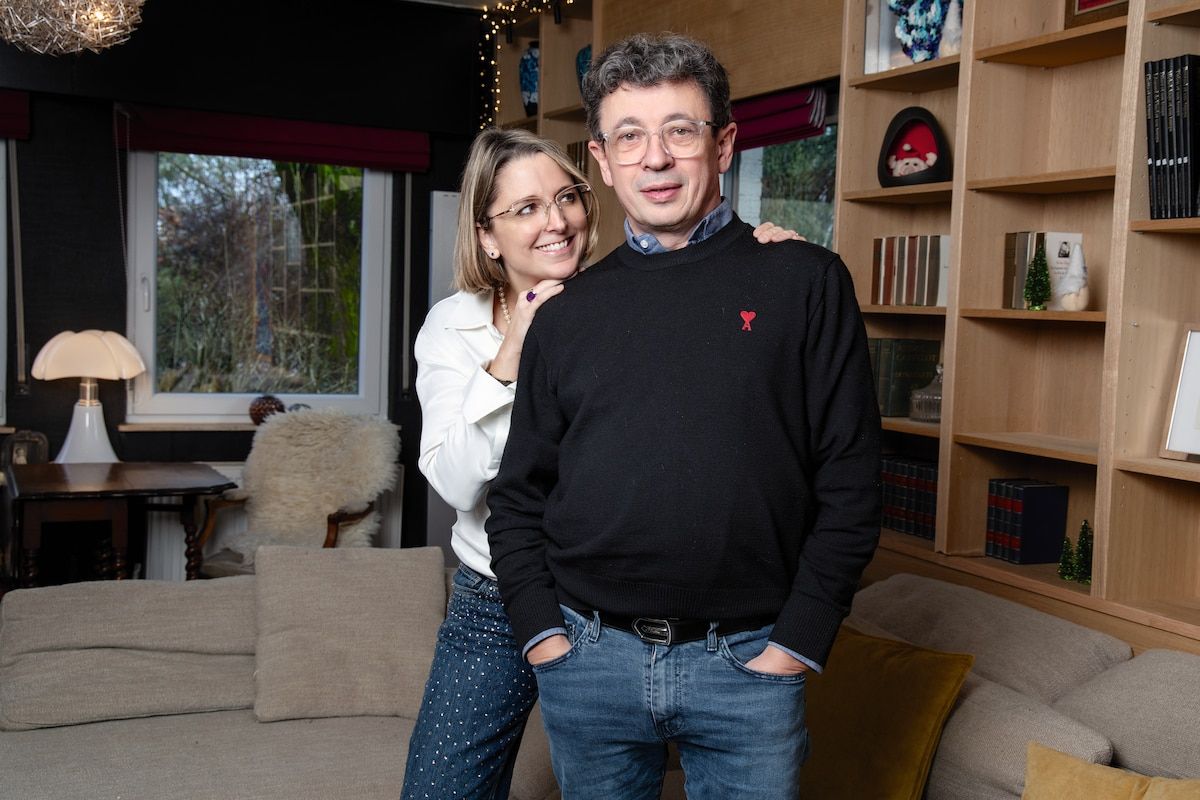
How do you explain this fascination with death?
“I don’t explain it. Concerning the books, I asked the people who come to the signing why they liked them and some mentioned the short side of my chapters. On a forensic level, the story is frankly fictionalized , or even completely invented, I don’t know it, generally.”
What is the last case that struck you?
“A funny thing happened to me during a conference in Louvain-la-Neuve. When the audience was asking questions, a lady said to me: ‘I want to thank you because you saved me from the prison.” Ah, what do you mean? “My husband was found dead near a radiator. The policeman thought I had pushed him because we were a problem couple and you demonstrated through your autopsy that he had run into the radiator and had a heart attack.” Except that I didn’t I didn’t say that to please him! I told him that these were the elements that allowed this conclusion and as she was with her new companion, I added for him: “Be careful with the radiators. You never know.” She was dying of laughter. She’ll be in the next book.”

